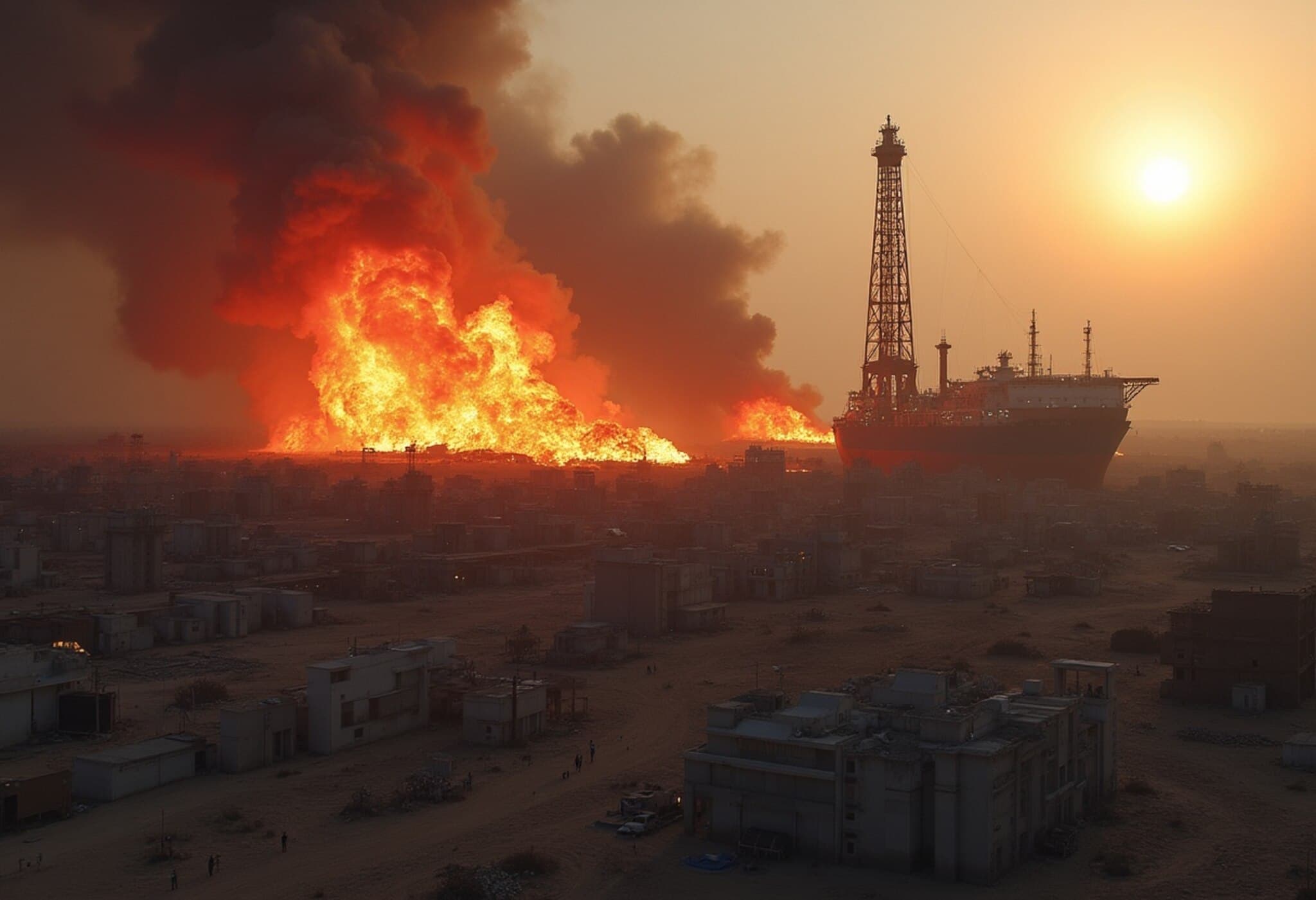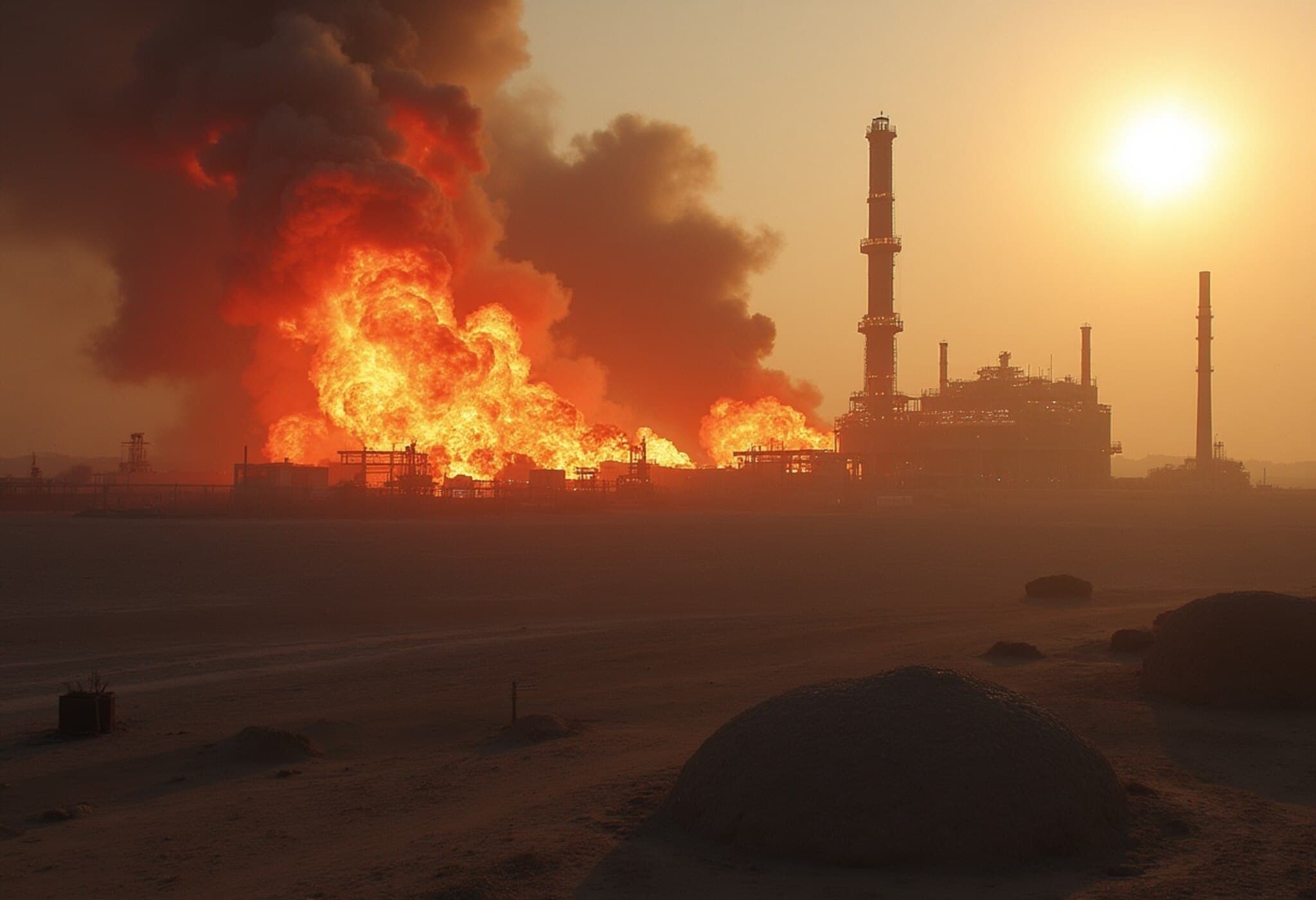Oil Prices Reach New Heights Amid Middle East Tensions
Oil prices climbed to a five-month peak, rising more than 2.8%, as growing unrest in the Middle East escalates with the United States now actively engaging alongside Israel in the conflict against Iran. This surge reflects deepening concerns over supply disruptions and geopolitical instability that could ripple through global markets.
Asian Stock Markets Slide on Escalating Conflict
Asian equities responded nervously to the developments, with key indices slipping early Monday. MSCI's broad Asia-Pacific index, excluding Japan, declined by 0.5%, while Japan’s Nikkei dropped 0.9%. In the United States, futures pointed to a cautious open with the S&P 500 shedding 0.5% and Nasdaq futures down about 0.6%.
Tensions Intensify Following US Strikes on Iran’s Nuclear Sites
The US recently targeted three critical nuclear facilities in Iran, intensifying anxieties over potential retaliations from Tehran. While global markets have not yet shown signs of panic selling, uncertainty looms large, especially around the possibility of Iran blocking the Strait of Hormuz — a pivotal maritime chokepoint.
The Strategic Importance of the Strait of Hormuz
The Strait of Hormuz, situated between Iran and Oman, channels about a quarter of the world's oil shipments and 20% of liquefied natural gas supplies. Iran’s parliament has endorsed the option to close this vital waterway, though the ultimate decision rests with Iran's Supreme National Security Council.
A blockade here could trigger a supply crunch, sharply increasing oil and LNG prices worldwide. Since there are no feasible alternative sea routes, such a move would disrupt energy shipments from key producers including Saudi Arabia, the UAE, and Iran itself.
Globally, nations like Europe and Japan depend heavily on imports via this corridor, whereas the US is a net oil exporter. India, ranked as the world’s third-largest crude oil consumer, remains particularly vulnerable to any spike in energy costs.
Market Overview: Currencies and Commodities
- US crude oil surged to $75.98 per barrel, marking a significant uptick.
- The US dollar gained approximately 0.25% against the Japanese yen, touching a one-month high of 146.415 yen.
- The euro fell by 0.33% to $1.1484, while the Australian dollar slipped to near three-week lows at $0.6437.
- Gold prices edged slightly lower by 0.1%, trading at $1,363 an ounce, as investors weigh geopolitical risks against market uncertainties.
Expert Insights on Potential Oil Market Disruptions
Historical patterns reveal that regional conflicts in West Asia can cause oil prices to spike dramatically — past episodes saw increases of up to 76% at their peak and an average rise exceeding 30%. Analysts highlight that Iran might opt for selective disruptions rather than a full blockade to avoid crippling its own oil exports.
“Targeted disruptions that deter oil tanker movements without closing the Strait entirely are more probable, given the self-damaging impact a closure would entail,” explained a commodities expert, underscoring the delicate balance Tehran may seek to maintain.



















